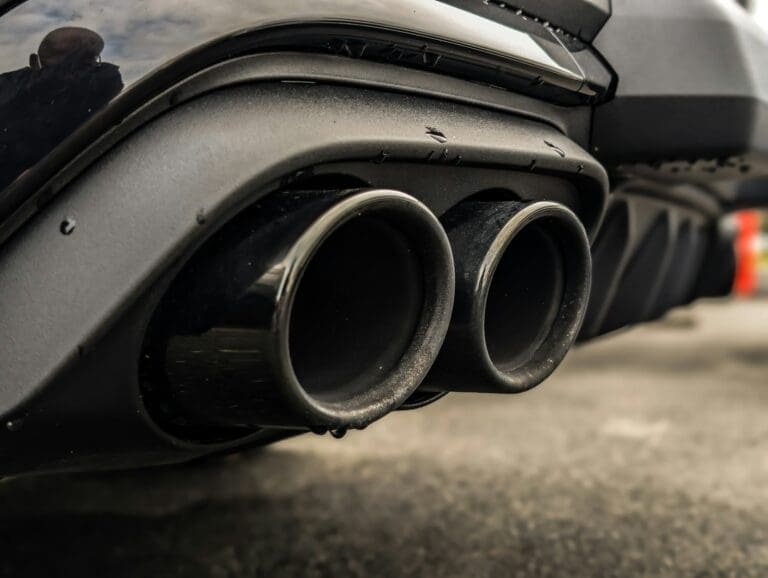When it comes to monitoring and controlling vehicle mileage, mileage blockers—also known as mileage stoppers or odometer blockers—are tools that have gained attention. These devices can pause or stop the mileage from being recorded, often used by those looking to prevent their odometer from displaying the actual distance traveled. However, the question many people ask is: Are mileage blockers illegal?
In this post, we’ll explore what mileage blockers are, why people use them, and the legal ramifications associated with their use.
What Are Mileage Blockers?
Table of Contents
ToggleMileage blockers are devices installed in vehicles to prevent the odometer from logging miles while the car is in motion. Essentially, these devices stop the vehicle from recording mileage during use. People may install mileage blockers for various reasons, such as during vehicle testing, maintenance, or for personal reasons to reduce mileage displayed on the odometer.
Mileage blockers are typically installed by connecting the device to the vehicle’s electronic system, specifically the odometer, where they interrupt the signal that records the distance traveled. The device is designed to be toggled on and off, giving the driver control over when mileage is recorded and when it is not.
Common Uses of Mileage Blockers
While mileage blockers might seem like a simple tool, their usage extends into different areas, some of which are legitimate, while others fall into a grey area or even illegal territory.
- Testing and Maintenance:
Some people use mileage blockers during diagnostic tests or maintenance to ensure that mileage doesn’t accumulate unnecessarily during routine checks or tests. For example, a car manufacturer or mechanic might use a mileage blocker when running tests on a vehicle. - Leasing Vehicles:
One of the more controversial uses of mileage blockers is in leased vehicles. Drivers who are leasing vehicles may use a mileage blocker to avoid exceeding the mileage limits set by the leasing agreement. However, this type of use can be considered fraudulent since it misrepresents the vehicle’s actual mileage. - Preserving Resale Value:
In some cases, mileage blockers are used to preserve the value of a vehicle. Since a car’s mileage is a key factor in determining its resale value, some people may stop the mileage from being recorded to make the car seem less used. This type of use is almost always illegal, as it involves deception when selling the vehicle.
Are Mileage Blockers Legal?
The legality of mileage blockers depends on how they are used and the laws in your country or region. In many jurisdictions, using a mileage blocker to deceive potential buyers or avoid contractual obligations (such as in a leasing agreement) is considered illegal and constitutes fraud. Below is an overview of the legal implications:
- United Kingdom:
In the UK, it is illegal to sell a vehicle with tampered mileage without disclosing it to the buyer. The Consumer Protection from Unfair Trading Regulations clearly states that selling a vehicle with inaccurate mileage is a criminal offense if it misleads the buyer. Therefore, using a mileage blocker to sell a car without revealing the actual mileage is considered fraud. - United States:
In the United States, odometer tampering is a federal crime. The Truth in Mileage Act (TIMA) requires accurate disclosure of a vehicle’s mileage when sold. The law prohibits the use of devices or methods, such as mileage blockers, to alter or obscure the actual mileage of a vehicle. Anyone caught using or selling a vehicle with tampered mileage can face hefty fines and even prison time. - European Union:
In most EU countries, it is also illegal to tamper with a vehicle’s odometer or use mileage blockers for the purpose of deception. Many EU nations have laws in place that mandate accurate mileage reporting when selling or leasing a vehicle. - Other Regions:
While laws vary from country to country, the general consensus is that using mileage blockers for fraudulent purposes—such as deceiving buyers or violating leasing agreements—is illegal.
Penalties for Using Mileage Blockers
The penalties for using mileage blockers can be severe, especially when used to commit fraud. Depending on where you are located, you may face:
- Fines: In most regions, individuals found guilty of odometer tampering or using mileage blockers illegally can face significant fines. In the UK, fines can reach thousands of pounds, while in the US, federal penalties can be as high as $10,000 per violation.
- Imprisonment: In serious cases of fraud, such as large-scale odometer tampering, individuals may be sentenced to prison. For example, in the US, individuals convicted of odometer fraud can face up to three years in prison.
- Loss of Consumer Trust: For businesses, the use of mileage blockers to misrepresent vehicle mileage can lead to the loss of reputation and consumer trust. Legal action can also result in civil penalties and compensation claims from defrauded customers.
Can Mileage Blockers Be Used Legally?
There are some circumstances where mileage blockers might be used legally, provided there is no intent to defraud or deceive. These situations include:
- Testing and Diagnostics: As mentioned earlier, car manufacturers and mechanics may use mileage blockers for testing purposes. This is a legitimate use as long as the true mileage is disclosed to the owner or potential buyers.
- Off-Road or Track Use: Some car enthusiasts who use their vehicles primarily on race tracks or for off-road purposes may use mileage blockers to ensure the odometer doesn’t accumulate unnecessary miles. However, this must be clearly disclosed when selling the vehicle to avoid legal consequences.
Even in these scenarios, it is important to ensure that the use of the device is transparent and legal under local laws.
How to Protect Yourself from Odometer Fraud
If you’re buying a used vehicle, it’s important to protect yourself from odometer fraud. Here are some tips to avoid being misled:
- Check Vehicle History Reports: Always ask for a comprehensive vehicle history report, which can reveal discrepancies in mileage readings.
- Inspect Service Records: Service records often contain mileage data, allowing you to compare the reported mileage with the actual use of the vehicle.
- Professional Inspection: Have a mechanic inspect the vehicle before purchase to verify that the mileage matches the wear and tear on the car.
Conclusion
While mileage blockers may have legitimate uses in some testing environments, using them to misrepresent a vehicle’s true mileage or defraud buyers is illegal in most countries. The penalties for odometer fraud can be severe, and it’s important to understand the legal implications before installing or using a mileage blocker.
If you’re considering using a mileage blocker for any reason, be sure to consult local laws and remain transparent about the true mileage of your vehicle to avoid legal trouble.
For legal vehicle solutions, Pro Remapping specializes in ECU remapping and AdBlue deletion across Stoke-on-Trent. Call 07404 022260.


